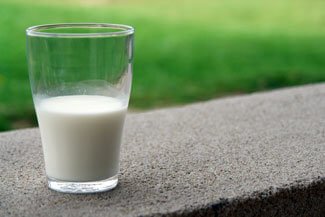Table of Contents
Milk is not the magic bullet in the fight against osteoporosis. In fact many people are surprised to learn that the research around milk and osteoporosis is controversial and far from conclusive when it comes to milk and decreased risk of osteoporotic fractures.
Milk and Dairy: Good or Bad for Human Health?
A recent review in the journal Food and Nutrition Research titled, “Milk and dairy products: good or bad for human health? An assessment of the totality of scientific evidence”, concludes that to date “meta-analyses have not supported a protective effect of milk and dairy intake in adulthood on risk of osteoporosis and bone fractures”.
They further state, “The present evidence suggests a positive effect of milk and dairy intake on bone health in childhood and adolescence, but with only limited evidence on bone health in adulthood and on the risk of bone fractures in older age”.
They conclude, “The totality of available scientific evidence supports that intake of milk and dairy products contribute to meet nutrient recommendations, and may protect against the most prevalent chronic diseases, whereas very few adverse effects have been reported”. Most of the studies’ authors declared they have received funding from dairy organizations.

More Milk. Greater Fracture Risk?
An interesting 2014 Swedish study published in the British Medical Journal found that women who drank more milk were at greater risk of fractures. Significant increases in fracture risk occurred in women with milk intakes as low as one to two servings per day.
This was a large study of over 61,000 women 39 to 74 years and of over 45,000 men ages 45 to 79. Women who consumed 3 or more 8-ounce milk servings per day were close to twice as likely to die as those consuming less than 1 serving milk per day. The participants that drank the most milk were 16% more likely to suffer from all types of fractures and 60% more likely to have a hip fracture.
The researchers postulated that D-galactose, which is part of the lactose in milk, might be the problem. D-galactose is much lower in fermented dairy products. The study also found that higher consumption of fermented milk products was associated with less risk of fracture and mortality.
This is an observational study, which means it does not prove a causative effect. More research on milk and osteoporosis is needed before definite conclusions can be made. This is not the first study or expert to question the benefits of drinking milk and to find no association between drinking milk and less fractures.
The researchers did not suggest that the study on milk and osteoporosis conclusively proved you should avoid milk but did state, “Our results may question the validity of recommendations to consume high amounts of milk to prevent fragility fractures”.
Milk and Osteoporosis: Recommendations
Milk products are excellent sources of calcium and healthy bones require calcium. Consuming milk is a personal decision. If you enjoy and tolerate milk, and choose to drink it, then drink it in moderation and keep in mind there is a lot more to healthy bones than drinking milk. I’d also encourage you to consider substituting more fermented dairy for regular milk and to be sure to eat lots of fruits and vegetables and adequate protein.
My personal practice and recommendation at this time is to get a significant amount of your calcium from plant foods and fermented dairy like yogurt and kefir. Limit milk to moderate amounts and do not feel guilty about not drinking milk, as long as you get your calcium from other sources. While I personally don’t drink a lot of regular milk, I do occasionally enjoy a good latte or mug of hot chocolate made with milk, low fat or fat free, since I’m always watching my calories.
Osteoporosis Guidelines
For more information, check out my Osteoporosis Guidelines.

Comments